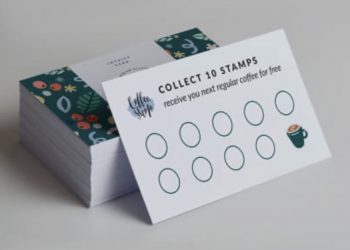Care aids (Pflegehilfsmittel) are essential equipment and supplies used to facilitate home care, alleviate the discomfort of those needing care, and enable them to lead a more independent daily life. The legal basis for the entitlement to these aids is primarily the German Social Code, Book Eleven (SGB XI)—Social Long-Term Care Insurance. The cost bearers fundamentally distinguish between two main categories of care aids, which differ significantly in their nature, intended use, and the rules for cost coverage. The so-called Aid Register (Hilfsmittelverzeichnis) of the National Association of Statutory Health Insurance Funds (GKV-Spitzenverband) provides a detailed guide and lists the reimbursable products in various product groups.
Types of Care Aids
The distinction between the two categories is crucial for those needing and providing care, as they require different processes for application and billing:
Consumable Care Aids
These aids are intended for single use and primarily serve to ensure hygiene and infection protection in the home environment. They can be found in the Aid Register under Product Group 54. This includes:
- Hygiene Products such as disposable gloves, medical face masks, FFP2 masks, and protective aprons.
- Disinfectants for hands and surfaces to reduce the germ load.
- Disposable Bed Protection pads and other consumables like finger cots or disposable bibs.
Technical Care Aids
These are durable devices and equipment that are usually provided on a loan basis. They are listed in Product Groups 50 to 53 and serve various purposes:
- To Facilitate Care: This includes essential aids like the care bed or special positioning aids.
- For Personal Care and Hygiene: This category includes aids that support independence in personal hygiene, such as shower stools, commode chairs, or bath lifts.
- For a More Independent Daily Life: This category includes, among other things, emergency call systems that can summon quick help in emergencies, or aids for taking medication.
Eligibility and Requirements
To be eligible for cost coverage for care aids through the long-term care insurance fund, the person needing care must generally have a recognized care degree (Pflegegrad, from Level 1 onwards). Furthermore, the care must take place at home or in a comparable domestic setting (e.g., a shared living arrangement). The requested aid must either facilitate home care, contribute to the alleviation of discomfort, or enable a more independent life for the person needing care.
Application and Cost Coverage
The process for cost coverage is regulated by the long-term care insurance fund and begins with an informal application or by using specific forms provided by the respective service provider.
Consumable Care Aids
For consumable care aids, a monthly lump sum of up to 40 Euros (as of 2024; the amount may change) is provided starting from Care Degree 1. This amount is intended to cover the costs of necessary consumable materials. The application for this lump sum usually only needs to be submitted once. Billing often takes place directly between the provider (e.g., medical supply store or specialized service provider) and the long-term care insurance fund, so the person needing care does not have to pay in advance. A doctor’s prescription is generally not required for this.
Technical Care Aids
For technical care aids, a doctor’s prescription is often necessary. Following a legislative change, qualified nursing professionals can also recommend necessary aids under certain conditions.
Larger, expensive technical aids (e.g., care beds) are usually provided on a loan basis, which means no co-payment is due. If the aid is not provided on a loan basis, the statutory co-payment is generally 10 percent of the cost, up to a maximum of 25 Euros. Upon approval, the long-term care insurance fund must make a timely decision, adhering to legal deadlines.
Technical Care Aids and Aids for Alleviating Discomfort
These are durable devices and equipment that are usually provided on a loan basis, as well as specialized products for pain relief. They are listed in Product Groups 50 to 53 and serve various purposes:
- To Facilitate Care: This includes essential aids like the care bed or special positioning aids.
- For Mobility and a More Independent Daily Life: This category includes aids such as the emergency call system or Rollatoren, which enable increased safety and mobility.
- For Personal Care and Hygiene: This includes aids that support independence in personal hygiene, such as shower stools, commode chairs, or bath lifts.
- For Alleviating Discomfort: This includes specialized products like foam dressings (Schaumverbände) and other wound care materials used for the treatment or prevention of discomfort.
Provision and Selection
Care aids are supplied by contractual partners of the long-term care insurance funds, such as medical supply stores, pharmacies, or homecare companies. Those needing care have the freedom to choose their provider. It is advisable to seek consultation from a qualified provider before the initial order or application to accurately determine the individual needs and ensure that the selected aids optimally fit the care situation.
More infos about healthcare herehttps://medisanshop.de/ratgeber/









